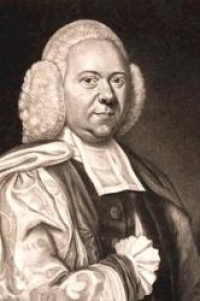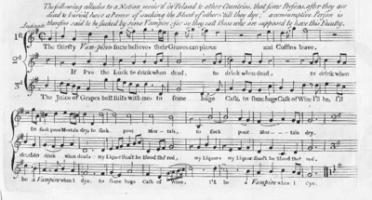William Hayes Sheet Music
 William Hayes (26 January 1708 (baptised) – 27 July 1777) was an English composer, organist, singer and conductor.
William Hayes (26 January 1708 (baptised) – 27 July 1777) was an English composer, organist, singer and conductor.Hayes was born in Gloucester. He trained at Gloucester Cathedral where the cathedral account books record his name amongst the choristers from 1717. He spent the early part of his working life as organist of St Mary's, Shrewsbury (1729) and Worcester Cathedral (1731). The majority of his career was spent at the University of Oxford where he was appointed organist of Magdalen College in 1734, and established his credentials with the degrees of B.Mus in 1735 and D.Mus in 1749. (He was painted by John Cornish in his doctoral robes around 1749.) In 1741 he was unanimously elected Heather Professor of Music and organist of the University Church of St Mary the Virgin. He presided over Oxford's concert life for the next 30 years, and was instrumental in the building of the Holywell Music Room in 1748, the oldest purpose-built music room in Europe. He was one of the earliest members of the Royal Society of Musicians, and in 1765 was elected a "privileged member" of the Noblemen and Gentlemen's Catch Club. He died in Oxford, aged 69.
 Sheet Music Mobile is a site for those who wants to access popular sheet music easily,
letting them download the sheet music for free for trial purposes.
It's completely free to download and try the listed sheet music, but you have to delete the files after 24 hours of trial.
Don't forget, if you like the piece of music you have just learned playing,
treat the artist with respect, and go buy the original sheet music.
Sheet Music Mobile is a site for those who wants to access popular sheet music easily,
letting them download the sheet music for free for trial purposes.
It's completely free to download and try the listed sheet music, but you have to delete the files after 24 hours of trial.
Don't forget, if you like the piece of music you have just learned playing,
treat the artist with respect, and go buy the original sheet music.

